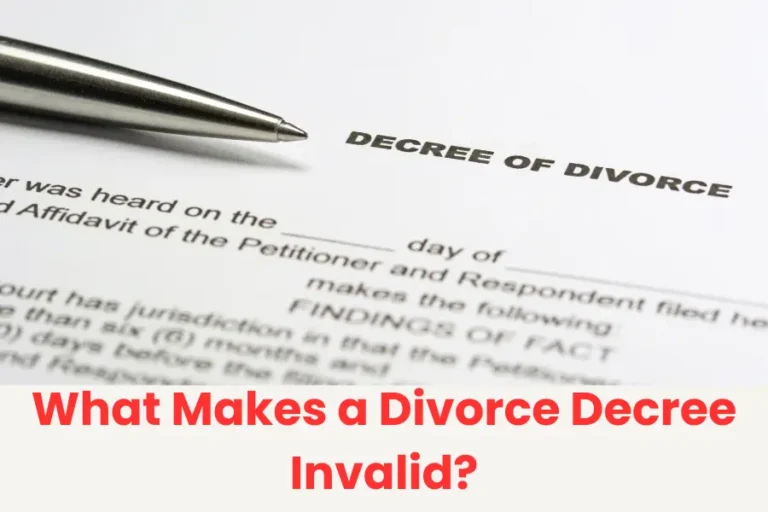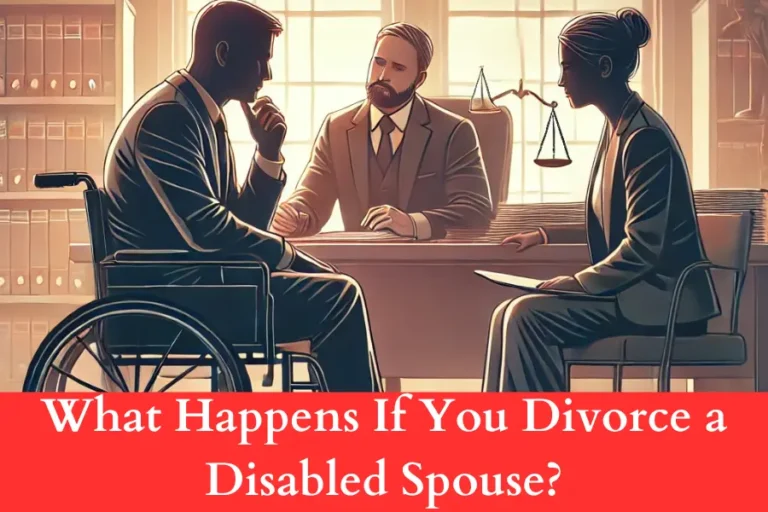How to Get a Divorce in SC Without Waiting a Year? 4 Ways
Divorcing is hard, but waiting a whole year can feel impossible. If you’re wondering how to get a divorce in SC without waiting a year, you’re not alone. The waiting period can seem like forever, especially if you’re ready to move on. Thankfully, South Carolina allows immediate divorces in some cases.
Fault-based divorces in South Carolina let you skip the year-long wait. However, a judge will demand a proof of certain grounds like adultery, abuse, habitual drunkenness, or desertion. With clear evidence and proper filing, you can fast-track the process.
Here, you will learn details about how you can avoid waiting for an year for divorce in SC. You will also find out:
- The steps you need to take
- The documents required
- Tips to make the process as smooth as possible.
Keep reading.
Key Points
- Filing a fault-based divorce in SC lets you skip the one-year wait if you prove adultery, cruelty, or other grounds.
- Ensure your paperwork is accurate and complete to avoid delays.
- Gather strong evidence early, like texts, photos, or police reports.
- Reach a settlement agreement with your spouse to speed things up.
- Waive the waiting period for court hearings by proving urgency.
- File in the correct Family Court to prevent jurisdictional delays.
- Hire a lawyer for smoother filing and to avoid costly mistakes.
How to Get a Divorce in SC Without Waiting a Year? (The Details)
In South Carolina, you can file for divorce without waiting a year if you can prove fault-based grounds. These include:
- Adultery
- Physical cruelty
- Habitual drunkenness
- Drug abuse
- Desertion.
Each requires clear evidence and must be approved by the court.
Adultery
Adultery is a valid reason to skip the one-year waiting period for divorce in South Carolina. It means one spouse has had an affair outside the marriage. To file for divorce on these grounds, you must present solid proof to the court.
This proof could include:
- Text messages
- Emails
- Photos
- Even witness statements.
For example, if a private investigator documents that your spouse stayed overnight with another person, this can support your claim.
Remember: Courts will not accept suspicion alone. They need evidence that points clearly to an ongoing extramarital relationship.
However, there’s a rule to remember – If you forgave your spouse after learning about the adultery and resumed your relationship, the court may not allow you to use this ground for divorce. This is called “condonation,” and it can weaken your case.
To build a strong case, it’s smart to work with a divorce lawyer. They can guide you on collecting evidence legally and presenting it effectively in court. Remember, proving adultery takes more than making accusations.
Also, keep in mind that adultery may affect other parts of the divorce. For example, it could impact alimony decisions. A lawyer can help you understand how this might apply to your situation.
Physical Cruelty
Physical cruelty happens when one spouse harms the other physically. You will have to prove the real acts of violence or abuse. This could include:
- Medical reports showing injuries
- Police reports from incidents of abuse
- Photos of bruises.
Physical cruelty cases can move quickly through the court system because they deal with urgent matters of safety. A judge will review your evidence to determine if the abuse justifies an immediate divorce. Having a skilled lawyer is crucial here. They’ll make sure your evidence is organized and presented in a way that meets legal standards.
You may also request a restraining order or other protections while the divorce process continues.
Habitual Drunkenness or Drug Abuse
If your spouse has a serious problem with alcohol or drugs, and it has affected your marriage, you can file for a fault-based divorce. This ground is called habitual drunkenness or drug abuse.
To prove this, you’ll need rehab records, police reports, or testimony from friends or family who have witnessed the addiction. Moreover, you can also use Bank statements showing repeated purchases of alcohol or drugs.
It’s important to explain how this addiction has harmed your marriage. For example, it might have caused financial problems, emotional distress, or neglect of responsibilities. Courts look at the overall impact of the addiction, not just isolated incidents.
Desertion
Desertion happens when one spouse leaves the marital home and abandons the other for at least one year. While the one-year absence is part of the requirement, proving desertion can still allow you to bypass the waiting period for separation.
To prove desertion, you must show that your spouse left voluntarily and had no valid reason to do so. Evidence like emails, text messages, or witness testimony can help you in the court.
Another important factor is showing that your spouse had no intention of returning. If you’ve tried to reconcile or contact them and received no response, this can support your claim. Testimony from neighbors or family who saw your spouse leave and not return can be helpful.
That’s all about how to get a divorce in SC without waiting a year.
Steps to Take to File for an Immediate Divorce in South Carolina
To get an immediate divorce in South Carolina, start by consulting a family law attorney. File a complaint in the Family Court of your county. Gather evidence to support your fault-based claim and attend a court hearing where the judge will decide based on the proof presented.
Consult an Attorney
The first step to filing for an immediate divorce is hiring a knowledgeable family law attorney. It’s important because fault-based divorces can be complicated.
Your attorney’s role starts with understanding your case. They will ask you about your grounds for divorce, such as adultery, physical cruelty, habitual drunkenness, or desertion. They will also explain whether your situation under South Carolina law.
After this, your divorce attorney will help you gather the necessary evidence. For example, if your claim is based on adultery, they will guide you on collecting proof like messages, photographs, or witness statements. If it’s a case of physical cruelty, they’ll ask for medical reports or police records.
An attorney also takes care of drafting and filing your legal documents. This includes the complaint, which starts the divorce process.
File a Complaint: How to File for Divorce in SC
Your complaint must include the specific fault ground you’re using, whether it’s adultery, physical cruelty, habitual drunkenness, or desertion. It must also provide a brief explanation of the evidence you have to support this claim.
The complaint is filed in the Family Court of the county where either you or your spouse resides. Your attorney will ensure it’s drafted properly and submitted in accordance with state rules. Filing incorrectly can lead to delays or rejection, so accuracy is critical.
Provide Evidence
Once your complaint is filed, the next crucial step is to provide evidence. This is where you prove to the court that your fault-based ground for divorce is valid. Without strong evidence, the judge may dismiss your case or require more proof.
The evidence needed depends on your chosen fault ground. For example, if you are claiming adultery, you may need photos, text messages, or testimony from witnesses. For physical cruelty, medical records or police reports are key.
If your evidence is clear and convincing, the judge is more likely to grant an immediate divorce.
Attend a Hearing
During the hearing, you and your attorney will present your evidence. You’ll explain the fault ground you’re using and how the evidence supports it. about the timeline of events or the reliability of your evidence. Your attorney will prepare you for this, so you feel confident and ready to answer.
Your spouse will also have the chance to respond. They can contest your claims or agree with them.
If the judge finds your evidence convincing, they will waive the one-year waiting period and grant the divorce. However, if the evidence is insufficient, the judge may deny the request or ask for additional proof. This makes the hearing the most critical stage in the process.
Attending the hearing completes the legal steps for an immediate divorce.
What Should You Expect During the Court Proceedings for an Immediate Divorce?
During court proceedings for an immediate divorce, you will present your case to the judge. You must provide clear evidence for your fault-based claim. Plus, answer questions from the court and listen to your spouse’s side.
The judge will evaluate all the details and decide whether to grant the divorce.
Responding to the Court’s Questions
After presenting your case and evidence, the judge may ask questions to clarify the details. This is a normal part of the proceedings and helps the court get a full understanding of your situation. Being prepared for these questions is critical to moving your case forward.
Questions often focus on two things:
- The timeline of events
- The reliability of your evidence.
For instance, the judge might ask when the alleged incidents occurred or how they impacted your marriage.
Your lawyer will prepare you for this stage before the hearing. They’ll explain what kinds of questions the judge might ask and guide you on how to respond clearly and confidently. Answering truthfully and directly is essential for maintaining credibility.
Hearing Your Spouse’s Side
If your spouse is present at the hearing, they will have an opportunity to respond to your claims. If your spouse contests your claims, they might present their own explanations. For instance, they might deny allegations of physical cruelty or argue that your evidence is insufficient.
This is why having a strong and well-documented case is so important.
If your spouse does not contest the claims, the process can move more quickly. In such cases, the judge is more likely to accept your evidence.
Tips to Speed Up the Divorce Process Legally in South Carolina
You can speed up the divorce process in South Carolina if you follow some proven tips. Let’s have a look:
File for a Fault-Based Divorce
A fault-based divorce can save time because you don’t have to wait the usual one-year separation period. To start, gather strong evidence early. This could include text messages, photos, police reports, or witness statements. The evidence needs to show clearly that your claim is valid.
Without proof, the court cannot grant a fault-based divorce.
Act quickly once you have the required evidence. Delaying your filing can stretch out the process unnecessarily. As soon as you have enough proof, file your case with the Family Court.
Ensure All Documents Are Complete and Accurate
Paperwork mistakes are a common reason for delays. If your documents are incomplete or have errors, the court may reject your filing.
South Carolina requires several forms for divorce, including the Complaint for Divorce, Summons, and Financial Declaration. If you have a settlement agreement or custody plan, include those too.
Reach a Settlement Agreement with Your Spouse
Agreeing on issues like property, custody, and alimony makes the divorce process much faster. When you and your spouse can settle these matters outside of court, the judge only needs to approve your agreement.
Start by talking with your spouse about what’s important to each of you. It might be helpful to involve a mediator, who can guide these discussions and help you both reach fair compromises.
Once you agree, put everything in writing. This is your settlement agreement, and it should cover things like:
- Dividing assets
- Who gets custody of the kids
- How much support will be paid.
Your lawyer can review the agreement to make sure it’s clear and meets the court’s requirements. A poorly written agreement might be rejected, which means more delays.
Waive the Waiting Period for Hearings
South Carolina usually requires a 90-day waiting period before the final divorce hearing. However, you can request a waiver if you have a valid reason, such as financial hardship or safety concerns.
To do this, you’ll need to file a motion with the court. This is a formal request that explains why you want the waiting period waived. You might include evidence, like financial records or police reports, to support your case.
Opt for an Uncontested Divorce
An uncontested divorce is much faster than a contested one. This means both you and your spouse agree on all major issues, like dividing property or deciding custody arrangements. Without disagreements, there’s no need for lengthy court battles.
Once everything is settled, file the necessary documents with the court.
File in the Correct County
Filing your case in the wrong county can cause big delays. South Carolina requires you to file in the correct Family Court based on where you or your spouse lives.
If you’re unsure, start by filing in the county where your spouse currently lives. If they’ve moved, you can file where you last lived together. If neither applies, filing in your current county is usually acceptable.
Use a Legal Professional
Experienced lawyers know South Carolina’s divorce laws inside and out. They make sure all your documents are correct and submitted on time.
Lawyers also help request expedited processing when possible. For example, they might file a motion to waive waiting periods.
Explore an Annulment
In rare cases, an annulment might be quicker than a divorce. Annulments declare that your marriage was never legally valid. This is different from a divorce, which ends a legal marriage.
To qualify for an annulment, you need specific reasons. These might include fraud, bigamy, or one spouse lacking the capacity to consent at the time of marriage.resolve faster. However, annulments are rare and depend on unique circumstances.
A lawyer can help you determine if annulment is an option for your situation. If it’s not, they’ll guide you through other ways to speed up the divorce.
Avoid Delays by Your Spouse
Sometimes a spouse can cause delays by refusing to cooperate or respond. Taking proactive steps can help keep your case moving forward.
First, make sure your spouse is properly served with divorce papers. Using a process server or sheriff ensures they receive the documents officially.
If possible, work with your spouse to resolve disagreements before filing. Mediation or open communication can help settle disputes without dragging things into court.
If your spouse refuses to respond, your lawyer can request a default judgment.
How Long Does LegalZoom Divorce Take?
A LegalZoom divorce usually takes about 2-3 months if everything goes smoothly and the divorce is uncontested. However, the timeline can vary based on:
- State laws
- How quickly both spouses cooperate
- How long it takes the court to process the paperwork.
Factors Affecting the Duration of LegalZoom Divorce are:
State Laws and Requirements
How long your LegalZoom divorce takes depends a lot on your state’s rules. Each state has different laws about:
- How long you must wait after filing
- Who can file
- Whether hearings are needed.
For example, some states have waiting periods before a divorce can be finalized. These waiting periods can be as short as 30 days or as long as six months.
Residency rules also matter. Most states require you or your spouse to have lived there for a certain amount of time before filing for divorce.
How Well Both Spouses Cooperate
The speed of a LegalZoom divorce also depends on how much you and your spouse agree. If you both work together and don’t argue about things like property, custody, or alimony, the process goes faster.
If your spouse delays signing papers or refuses to cooperate, it can drag out the timeline. For LegalZoom to work quickly, both parties need to be on the same page.
Court Processing Times
Even if you and your spouse agree on everything, the court’s schedule can affect how long your divorce takes. Courts handle many cases at once, so how busy your local court is can play a big role.
LegalZoom prepares and submits your paperwork, but the court must review and approve it. Some courts move quickly, while others may take weeks or months to process documents.
Complexity of the Divorce
The more complicated your case, the longer it might take. If you don’t have kids, property, or shared debts, the divorce will likely move faster. However, if you do, these details need to be sorted out, which takes time.
LegalZoom simplifies the process for uncontested divorces, but complex cases might require more attention or additional legal help.
Submitting Documents on Time
One of the easiest ways to keep your LegalZoom divorce moving quickly is by submitting all documents on time. Delays often happen when forms aren’t completed or filed on schedule.
Make sure to follow LegalZoom’s checklist and provide all the required information. You’ll also need to get your spouse’s signature on some documents.
Staying proactive keeps your divorce on track.
How to File for Divorce in Dorchester County, SC
To file for divorce in Dorchester County, SC, make sure you meet the residency requirements. Then, file the required paperwork with the Family Court, serve your spouse with the divorce papers, and attend all necessary court hearings.
Step 1: Check Residency Requirements
Before you can file for divorce in Dorchester County, you need to meet South Carolina’s residency rules. These rules determine if the court has the authority to handle your case.
If you and your spouse both live in South Carolina, one of you must have been a resident for at least three months. If only one of you lives in the state, that person must have lived there for at least a year.
If you’re unsure about meeting residency requirements, talk to a lawyer.
Step 2: Complete and File the Paperwork
The next step is submitting the forms to the Family Court in Dorchester County. These are:
| Document | Description |
| The Complaint for Divorce | Outlines your reasons for seeking a divorce. |
| A Summons | Notifies your spouse about the case. |
| Financial Declaration | Required if you’re requesting child custody or support. |
Bring your completed forms to the Dorchester County Family Court to file them. Be sure to include the filing fee, which is usually around $150-$200. Some forms may need to be notarized, so check this in advance.
Step 3: Serve Your Spouse with Divorce Papers
You can serve the papers in several ways. The most common is through the sheriff’s office or a private process server. Both options ensure proper delivery. Plus, they provide proof of service (which you’ll need to file with the court).
If your spouse is hard to locate, you will have to request permission to use alternative methods, like posting a notice in a newspaper.
Step 4: Attend Court Hearings
If your divorce is uncontested, the hearing is usually quick. The judge reviews the paperwork to ensure everything is in order.
For contested cases, hearings take longer. Both sides will present evidence and arguments about issues like custody or property division.
Be mentally prepared.
Conclusion
Getting a divorce in SC without waiting a year is possible, but it takes planning and effort. Here’s a recap:
- File for a fault-based divorce with clear evidence.
- Ensure all your paperwork is accurate and complete.
- Work with your spouse to settle major issues.
- Prepare thoroughly for hearings or mediation.
Focus on what matters most—starting fresh and building a happier future.






